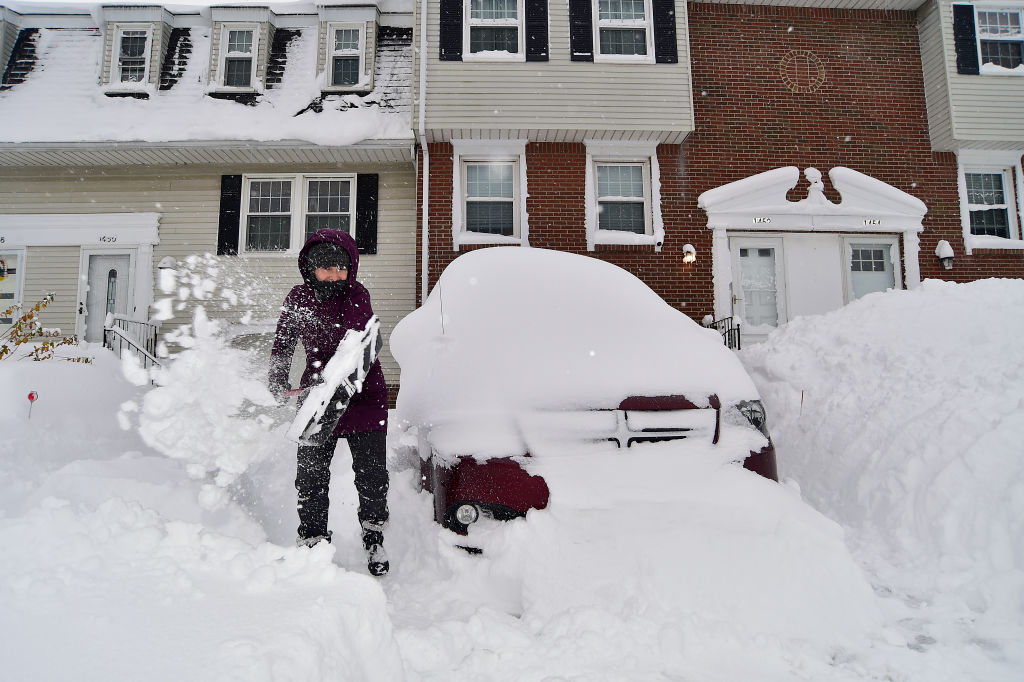
A Utah trip to enjoy the snow nearly ended in tragedy Tuesday when an avalanche struck a snowmobiler on a backcountry hillside — but his younger brother rushed to his aid and saved him.
“I could see his hand, his gloves, kind of poking out, waving,” Braeden Hansen said Wednesday, a day after the avalanche buried Hunter Hansen, his brother, in the Franklin Basin, close to the Idaho border.
“But by the time I got to him, he was about 2 feet, his head was about 2 feet under the snow,” Braeden said.
The avalanche happened at around 8,400 feet elevation, according to the Utah Avalanche Center. The area where it occurred had a “persistent weak layer,” it said in a notice of the event.
The brothers were enjoying the snow in some meadows in Logan Canyon. They were climbing up to a higher meadow when the avalanche came down the hillside.
"I saw the snow ripple and knew that was an avalanche," said Braeden, who was ahead of his brother.
“I turned around to watch the slide hit Hunter and just watched him kind of get tumbled and buried and then lost sight of him,” he said.
Braeden activated a beacon that showed where his brother was. He found Hunter about 150 yards down from where he had last seen him.
“I just cleared the snow away from his head and got his helmet off so that he could start breathing again, and then just started digging his body out from there,” Braeden said.
Get a weekly recap of the latest San Francisco Bay Area housing news. Sign up for NBC Bay Area’s Housing Deconstructed newsletter.
Hunter had pulled out his phone to record his brother passing him on the slope, and then something caught his eye. It was the avalanche, with the snow breaking apart and beginning to tumble. It happened too fast to get out of the way, he said.
“It just washed me down the mountain,” he said. “The most violent thing I’ve ever felt.”
He tumbled, and when the snow compacted, it felt like concrete, he recalled.
"Couldn't breathe, couldn't do anything," he said. "I slammed into a rock or a tree."
Hunter said he was bruised and is going to get his leg checked out for a possible fracture. He has a wife and a daughter, and his family has said his survival is a "Christmas miracle," he said.
The brothers were connected by a radio, but Hunter was immobile in the snow and could only listen but not respond. He heard their father and his brother talking about him and searching for him.
"I found him, I found him," came over the radio, Hunter recalled.
"There was just a sigh of relief when I felt him start digging," he said. He recalled "being on my last breath" and holding it as long as he could before he was rescued.
Hunter credited his brother's quick thinking.
The brothers always have beacons, which allow others to find them, as well as probes, shovels and airbag devices when they go into the backcountry in case of an avalanche, they said.
"It can happen at any moment and day, and it sure did happen to us," Braeden Hansen said.
An average of 27 people die in avalanches in the United States every year, according to the Colorado Avalanche Information Center. Utah has the fourth-most recorded avalanche deaths since the winter of 1951 and 1952. Colorado, Alaska and Washington state are the top three.
"You hear so many tragic stories of people getting buried in avalanches and not making it out, so I feel very blessed and lucky," Hunter Hansen said.
Phil Helsel contributed.
This story originally appeared on NBCNews.com. Read more from NBC News:




